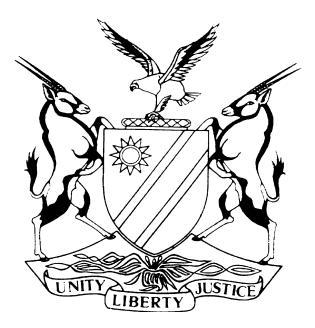1
NOT REPORTABLE 

HIGH COURT OF NAMIBIA MAIN DIVISION, WINDHOEK
REVIEW JUDGMENT
Case no.: CR 50 /2017
THE STATE
And
SEUN AFRIKANER ACCUSED 1
LUKAS HOKA ACCUSED 2
(HIGH COURT MAIN DIVISION REVIEW REF NO. 1530/2016)
(MAGISTRATE’S SERIAL NO. 148/2016)
Neutral citation: S v Afrikaner (CR 50 /2017) [2017] NAHCMD 221 (11 August 2017)
Coram: SHIVUTE J and SIBOLEKA J
Delivered: 11 August 2017

ORDER

a) The conviction and sentence in respect of accused 1 are confirmed.
b) The conviction and sentence in respect of accused 2 are set aside.

REVIEW JUDGMENT

SHIVUTE J (SIBOLEKA J concurring):
[1] The accused persons were convicted of housebreaking with intent to steal and theft.
[2] I directed the following query to the learned magistrate:
‘How did the court satisfy itself that the accused persons admitted all the elements of the offence if they were not asked as to where the offence was committed and in whose lawful possession the goods were?
Furthermore, whilst accused 1 said he entered the house in order to steal accused 2 was not asked as to his intention at the time he broke and entered the house.’
[3] The learned magistrate replied as follows:
‘Ad paragraph 2
It is concluded that the accused were not asked any direct question relating to the issues raised by the learned Judge. The record will however show that both accused admitted to breaking into complainant’s house in Herero block.
That is what satisfied the court that the accused had both addressed the issue of where the offence took place and in whose custody the property was.
Ad paragraph 3
The record will reflect that, while accused 2 was not directly asked what his intention was when he broke and entered the house in question, he associated himself as accused’s accomplice. When asked by the trial court why he pleaded guilty his answer was “because I also broke into that house with accused 1 and stole the property mentioned in the charge sheet. I was with accused 1 on the same date. I also wanted to sell the property for myself”.
That answer satisfied the court that indeed accused 2 like accused 1 entered the complainant’s premises in order to steal complainant’s property and sell same for his own purposes.’
[4] The primary purpose of questioning in terms of section 112 (1) (b) is to establish whether there is a reliable factual basis for the accused’s belief in his own guilt. It thus serves as a safety device against mistaken guilty pleas,1 particularly in cases of undefended accused persons whose statements alone found a conviction. See S v M 1982 (1) SA 240 (N) at 242D.
[5] In respect of the first accused, he is properly convicted. However, in respect of the second accused, the court did not establish his intention at the time when he was entering the premises and the conclusion reached by the court was based on deductions made by the accused’s answers during the s 112 (1) (b) proceedings. Therefore, the court should not make any inferences from what the accused has said to decide whether he admits a particular allegation.2 To this end, the court misdirected itself and the conviction falls to be set aside.
[6] In light of the fact that the accused has approximately one month left on his imprisonment, I see no reason to remit the matter back to the learned magistrate to deal with it accordingly.
[7] In the result the following order is made:
a) The conviction and sentence in respect of accused 1 are confirmed.
b) The conviction and sentence in respect of accused 2 are set aside.
_______________________
N N Shivute
Judge
_______________________
A Siboleka
Judge
1 S v Nkosi 1984 (3) SA 345 (A) 353D; S v Gresse 1985 (4) SA 401 (T) 404F.
2 S v Mathe 1981 (3) SA 664 (NC) 669F.